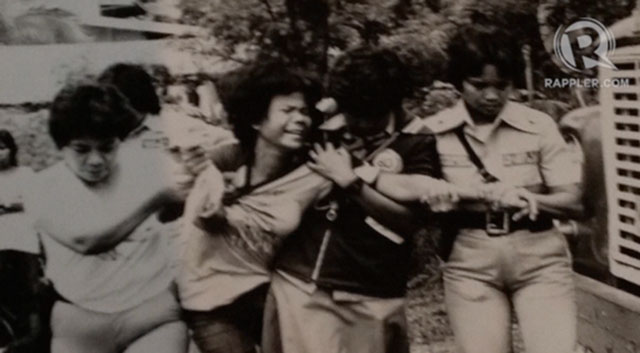SUMMARY
This is AI generated summarization, which may have errors. For context, always refer to the full article.

MANILA, Philippines – Although the Philippines has enacted laws promoting human rights and recorded fewer cases of extrajudicial killings in 2012, a culture of impunity still persists.
This is the current state of human rights in the Philippines, New York-based group Human Rights Watch (HRW) said in its World Report 2013.
HRW recorded a drop in the number of political killings in 2012. There have been at least 114 cases of extrajudicial killings since 2010, but only 13 cases were recorded in the past year.
Although the Philippines adopted laws advancing human rights – such as the Reproductive Health Law, the Kasambahay Law and the Anti-Enforced Disappearance Law, there is still no justice for victims of political killings as no suspects have been convicted since President Benigno Aquino III became president in 2010.
“If 2012 was the year for new laws promoting human rights, then 2013 should be the year for effective action,” said HRW Asia director Brad Adams.
Greater accountability for killings
HRW said there was an increase in attacks against environmentalists in the past year, especially those opposed to mining and energy operations. According to the report, evidence points to the involvement of paramilitary forces under military control.
HRW said the reported attacks came as as Aquino signed Executive Order 79, which implements reforms in the mining sector.
Despite the Ampatuan massacre in 2009, HRW said Aquino still failed to fulfill his promise to revoke Executive Order 546, which local officials, such as the Ampatuans, have used to justify their “private armies.”
The report said that while the Department of the Interior and Local Government has reported disbanding 28 private armies, about 100 such groups still remain.
Although efforts were made to hunt down high-profile suspects of extrajudicial killings, such as retired Maj Gen Jovito Palparan and former Palawan Gov Joey Reyes, HRW emphasized these efforts have so far failed.
Attacks against journalists also continued in 2012, with HRW recording 3 cases in the past year. An earlier report by the Center for Media Freedom and Responsibility said there were 4 cases of work-related killings involving journalists in the past year, a drop from 6 in 2011.
Repeal Cybercrime law
The Philippine Congress approved landmark bills in 2012, but it also passed the Cybercrime Prevention Act, which has been widely criticized.
According to the report, the Cybercrime law “severely undermine freedom of expression and the Philippines’ status as a regional leader in internet freedom” once it is enforced.
“The Philippine Congress has shown the capacity to craft laws that promote and protect human rights,” Adams said. “But it also passed a poorly thought out cybercrime law that could prove disastrous for internet freedom. The challenge now is for the government to implement these good laws in an effective manner while working to immediately overturn the cybercrime law,” Adams added.
The Supreme Court is in the process of hearing petitions to repeal or amend the Cybercrime Law.
A recent Reporters Without Borders report showed the Philippines dropped in World Press Freedom Rankings, placing 147 out of 179 countries. – Rappler.com
Add a comment
How does this make you feel?
There are no comments yet. Add your comment to start the conversation.